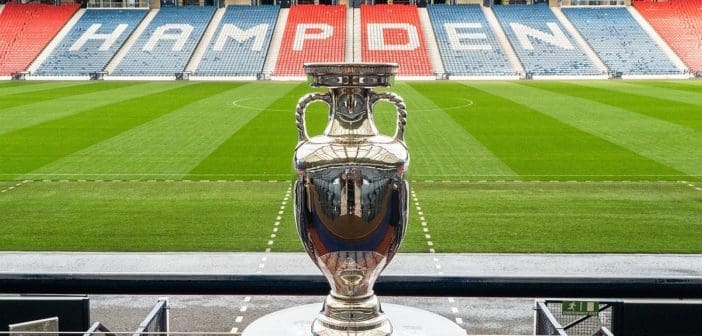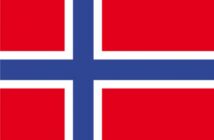It’s been a dark month for Scottish football. Clubs appeared to have put blatant short term interest first in rejecting all efforts at league reconstruction.
The current set up is stale enough.
No club outside the Old Firm has won the league since 1985. Crowds are dwindling everywhere except the Old Firm who are still using sectarian and ethnic identity, albeit with slightly more plausible deniability, to pull in support.
Hibernian, Kilmarnock and Motherwell have had fleeting glimpses of decent sides with the latter two grabbing recent third places. But the financial inequalities of wealth in Scottish football make those both fleeting and distant bronze medals.
There is, in reality, no optimism anywhere that it will be anything less than another 35 years before the title leaves its current monopoly.
The national side has shown glimmers of adequacy but the lack of any star quality akin to Wales’ Gareth Bale, Bosnia’s Miralem Pjanić, Croatia’s Luka Modrić or even the Irish Republic’s Robbie Keane, has put actual qualification for anything beyond reach.
Recently the chaos surrounding attempts at league reconstruction have engendered accusations of bullying and bad faith. Now two of Scotland’s oldest clubs, Heart of Midlothian and Partick Thistle, have joined forces to sue the SPFL over that failure.
Celtic crowned champions, Hearts and Thistle relegated
Hearts are an Edinburgh side. Roughly on a par with Aberdeen and local rivals Hibernian, they are the biggest club outside the Old Firm. Fans of all three regularly squabble over who is Scotland’s third biggest club; an investigative process that rarely provides a clear winner. Hearts were bottom of the top division when Coronavirus halted the season and have been relegated.
Partick Thistle were bottom of the Championship when the dark set in but had a game in hand over Queen of the South and were just two points behind. Points per game were used to relegate them.
To many outside Glasgow, they are just another club.
To many inside the city, they represent the only professional alternative to the Old Firm and all their religious baggage; a chance to watch a game of football without the bigotry or reliving recent Irish history with a jaundiced view. A chance to watch a club that has no interest in making anyone feel unwelcome.
No court date has been set for the Hearts/Thistle lawsuit but given that some sort of victory for the clubs could rip up any fixture list, all sides have an interest in a quick resolution.
The SPFL haven’t even given a date for the restart of League 1, the division to which they condemned Thistle, so the Glasgow club don’t even have a restart date for their games or indeed any certainty they will have a league to play in.
Rumours are circulating that some of the clubs in league 1 and 2 may not reappear in their current form, so no date can be or has been set for a restart. A club with 83 employees and a turnover of £3 million doesn’t know if it will ever play again.
Into this gloom for Scottish and especially Glasgow football comes some good news. Glasgow was the venue for the world’s first international match when Scotland faced England in Partick.
Today’s meeting of the UEFA Executive Committee confirmed Glasgow’s status as a host city for the EURO 2020 tournament.
It will now take place from 11 June to 11 July 2021, with UEFA confirming today that Glasgow’s three Group D matches will be held at Hampden Park on 14, 18 and 22 June 2021, followed by a round of 16 match on 29 June.
The Local Organising Structure [LOS] had taken part in discussions with European football’s governing body on behalf of key stakeholders in Scotland, including the Scottish FA, Scottish Government, Glasgow City Council and VisitScotland, the national tourist board.
The LOS had to consider the full implications for the city in light of the postponement and in particular Glasgow and Hampden Park’s ability to co-host the tournament in 2021 given other non-football activities already confirmed for the city and the stadium at that point.
When the LOS agreed that it could meet the tournament requirements, Glasgow’s role was safe.
Rod Petrie, Scottish FA President and Chair of LOS Glasgow said in a press release:
“LOS Glasgow is absolutely committed to providing a memorable experience for the city, the country as a whole, and to fans across Europe when the tournament takes place next year.
“We have been in regular dialogue with our colleagues at UEFA throughout the intervening period since postponement and are sympathetic to the considerable logistical challenges presented by a postponement to a tournament hosted in 12 cities across Europe.
“To that end, I would like to thank all partners involved in LOS Glasgow for their efforts in ensuring the city can fulfil the requirements to co-host UEFA EURO 2020. We will continue to liaise with UEFA as LOS Glasgow to ensure a smooth delivery plan is implemented in the 12 months leading up to the tournament.”
On behalf of the Scottish government, Fiona Hyslop (SNP), Cabinet Secretary for Economy, Fair Work and Culture added:
“Welcoming the UEFA European Football Championship to Glasgow in 2021 will be an important step in our economic and cultural recovery from Coronavirus.
“Scotland is a global leader in hosting major events and the 2020 calendar has been devastated by the pandemic. Hosting a major international event such as the European Championship next year will help bring the country together, demonstrate that we are very much open for business and further enhance our reputation as a world class host of major events.”
For local government, Councillor David McDonald (SNP) , Depute Leader, Glasgow City Council said:
“Glasgow is delighted that it has been reconfirmed today as a host city for the UEFA European Championship in 2021. There has been a huge amount of work undertaken by all the LOS partners to get us to this point, driven by the passion we know our citizens have for football and the desire to welcome fans from across Europe to our fabulous city, once the current health emergency is addressed.
“We believe this is an important signal that Glasgow and Scotland is committed to being open for business once again. UEFA EURO 2020 will make a significant contribution to creating a festival atmosphere in the city centre, provide an opportunity for communities to gather and celebrate together and give a welcome boost to businesses in the city following an exceptionally difficult year.”
Paul Bush OBE, Director of Events at VisitScotland noted:
“Events will play a key role in Scotland’s recovery from this current health emergency by providing great entertainment for locals and visitors as well as providing employment across the sector and a strong economic lift to the businesses in the areas they are held.
“We look forward to welcome football fans from all over Europe to Glasgow and Scotland for UEFA EURO 2020 next June and showing why we’re the perfect stage for events.”
The news will come as a welcome boost to the Scottish economy, not to mention reaffirming Scotland’s separate identity in terms of international football.
The old stadium has seen European competition before. Hampden has hosted six European finals. The first was the famous 1960 European Cup Final between Real Madrid and Eintracht Frankfurt which saw an attendance of 130,000 people in a memorable game which Real won 7-3. Many still consider it the best European Cup final ever.
That was followed by the 1962 Cup-Winners’ Cup final which ended in a 1-1 draw between Atletico Madrid and Fiorentina. The Italians won the replay in Stuttgart. Four years later Borussia Dortmund beat Liverpool 2-1 defeat in the same competition.
Ten years later, Hampden saw more German victory when Bayern beat St Etienne in the European Cup final. Real returned to Hampden in 2002 when Zinedine Zidane’s volley clinched a 2-1 Champions League win over Bayer Leverkusen.
The last European final at Hampden was an all Spanish affair between Sevilla and Espanyol on 2007.
In other news, Scotland’s play-off against Israel, originally due to be played at Hampden Park in March, will now take place on 8 October.
![Prost International [PINT]](https://prostinternational.com/wp-content/uploads/2021/08/PINTtFontLogoRoboto1536x78.jpg)



